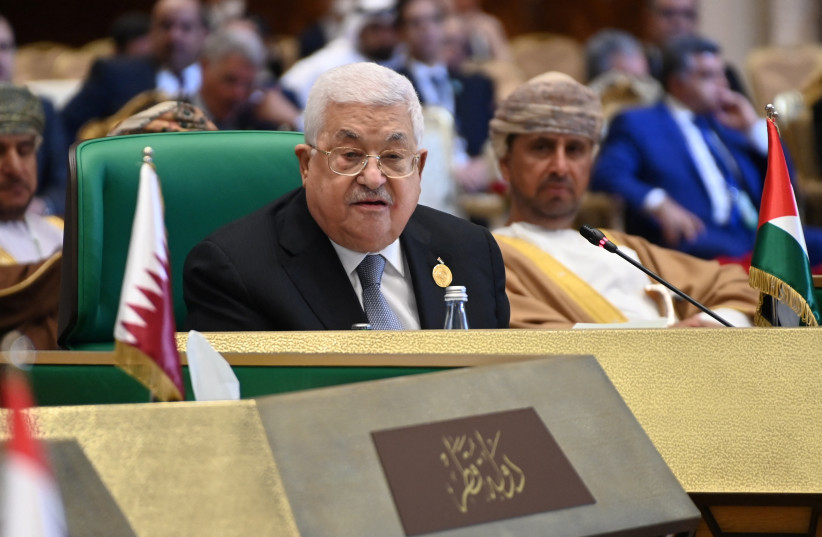The Palestinian Authority on Saturday banned Palestinian activists from participating in a video conference in Ramallah to demand reforms and elections for the Palestine Liberation Organization (PLO).
PA security officers arrested two prominent activists, Omar Assaf and Bashar al-Takrouri, and confiscated the mobile phone of another activist, Jamileh Abed. Several journalists who came to cover the event were briefly detained by the officers.
The crackdown is seen as part of the PA leadership’s efforts to silence its critics and prevent gatherings organized by opposition groups and figures.
The conference was organized by the Palestinian Popular Conference, a group that describes itself as a voice for 14 million Palestinians around the world, including in the West Bank and Gaza Strip.
According to the PPC, the purpose of the gathering was to call for reconstructing the PLO by holding elections for its legislative body, the Palestinian National Council (PNC).

Discontent, criticism of Abbas continues to grow
PA President Mahmoud Abbas, who is also chairman of the PLO, has been facing widespread criticism for refusing to share powers and for appointing a number of his loyalists to key positions in the Palestinian leadership.
Earlier this year, Abbas appointed Hussein al-Sheikh as secretary-general of the PLO Executive Committee, a job that boosts his chances of succeeding the PA president. In addition, Rawhi Fattouh, another Abbas confidant, was appointed speaker of the PNC.
Abbas has also been criticized by many Palestinians for calling off the presidential and parliamentary elections that were supposed to be held last year.
The organizers of the controversial conference claim that the PLO has lost its role as a true representative of the Palestinian people since the signing of the Oslo Accords between the Palestinians and Israel in 1993.
“The PLO provided a national framework to lift the Palestinian people from the rubble of the Nakba (catastrophe),” the PPC said in a statement, referring to the establishment of Israel in 1948.
“A tool of liberation, the PLO’s popularity gained momentum as a unifying sole legitimate representative of the Palestinian people. But the signing of the Oslo Accords resulted in the PLO relinquishing its tools for liberation.”
Commenting on the PA’s decision to ban the conference, a political activist in Ramallah said: “The PLO belongs to all Palestinians, not only President Mahmoud Abbas. The Palestinians, including those living in the diaspora, have the right to elect new leaders.”
The PNC denounced the conference, dubbing it an “attempt to circumvent the PLO, the sole legitimate representative of the Palestinian people, and efforts to unify the Palestinians.”
The council accused conference organizers of “perpetuating division” among the Palestinians and pledged to “foil all conspiracies to create alternatives to the PLO, just as it thwarted all previous attempts to impose guardianship, dependency, containment and control over the independent Palestinian national decision.”
